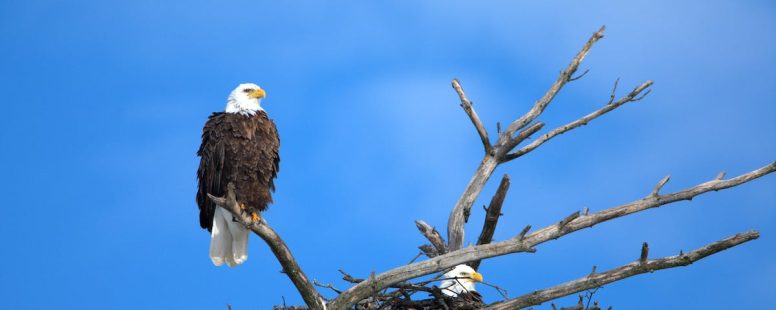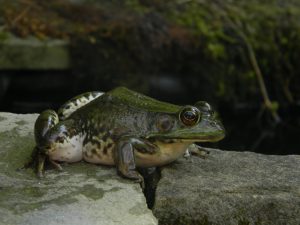Keep Gutters Clear: Stop Birds from Nesting
Birds nesting in your gutters can be more than just a noisy inconvenience; it’s a problem that can lead to clogged drains and potential water damage. You’re not alone if you’re grappling with this pesky issue. In this article, you’ll discover effective strategies to deter our feathered friends from turning your gutters into their home sweet home.
You’ll learn about the simple tweaks you can make to your gutter system and the humane deterrents that’ll keep birds at bay. Get ready to reclaim your gutters and enjoy a bird-free zone without harming your local wildlife. Keep reading to find out how to maintain the integrity of your gutters and say goodbye to unwanted nests for good.
Why Birds Nest in Gutters
Understanding why birds choose gutters to nest can be key to deterring them. One primary reason is that gutters offer shelter. Like all creatures, birds seek a safe haven to raise their young. Your home’s gutter system provides a protected spot, shielding nests from predators and harsh weather conditions.
Moreover, the architecture of most gutters is a perfect match for birds’ nesting habits. The enclosed design mimics natural cavities birds would typically use in the wild. It’s not just about shelter, though. Gutters often have ample supplies of nesting materials like leaves and twigs, making them even more enticing.
Location plays a significant role too. Gutters are typically at an elevated height, which reduces the risk of ground predators. This height also offers birds a vantage point to scout for food and watch out for threats. Additionally, if your gutters are clogged with debris, they’re even more appealing. The extra materials provide a solid foundation for birds to build upon, transforming your gutters into a cozy nesting site.
Birds also prefer quiet and less trafficked areas to nest. If your gutters are located in a spot that’s not frequently disturbed by human activity, birds are more likely to consider them a prime real estate for nesting. Couple this with the shortage of natural nesting sites in urban areas, and it’s clear why gutters are top picks for birds.
Hence, to make your gutters less welcoming to birds, you’ll need to address these aspects. But don’t worry, the following sections will guide you on the necessary measures you can take. It’s all about making your gutters less attractive and less accessible to our feathered friends. Stay tuned as you discover how to keep your gutters bird-free and functioning as intended.
The Problems Caused by Birds Nesting in Gutters
When birds pick your gutters as their home base, they’re not just creating a cozy nest for themselves. They’re also setting the stage for a host of issues that can wreak havoc on your property.
Property and Structural Damage is a significant concern. Nests are made from twigs, leaves, and other debris, which can clog your gutters and downspouts. This blockage prevents water from flowing freely, leading to overflow. During heavy rains, the excess water has to go somewhere. It could end up seeping into your roof, walls, and foundation, resulting in costly repairs down the line.
The standing water trapped by the nesting materials becomes a breeding ground for mosquitoes and other pests. These uninvited guests can carry diseases and create an unhealthy environment around your home.
Bird droppings are highly acidic and can cause Corrosion to the gutter materials over time. This deterioration isn’t just unsightly—it can also lead to holes in your gutters, causing leaks and potential water damage to your property’s exterior and landscaping.
Noise can become a nuisance, especially if you’ve got an early-morning chorus right outside your bedroom window. The constant chirping and flapping might disrupt your peace, particularly during the breeding season when young chicks are in the nest.
Lastly, consider the Health Risks. Bird nests can harbor parasites and bacteria, some of which are transferable to humans. Diseases like histoplasmosis, a respiratory illness caused by a fungus that grows in bird droppings, aren’t something you want to be exposed to.
By understanding the complications that arise from birds taking residence in your gutters, you’re better equipped to address the problem head-on. Ensuring that your home remains a human sanctuary, not a bird’s nest, requires both preventative measures and swift action if they’ve already settled in.
The Importance of Preventing Birds from Nesting in Gutters
Understanding the need to deter birds from your gutters is crucial. You’re not just maintaining your home’s aesthetics; you’re preventing serious damage and health risks. When birds choose your gutters as their nesting site, they create blockages that disrupt water flow. This stagnant water can damage your roof and fascia boards, leading to expensive repairs.
Moreover, the presence of nesting materials and droppings in your gutters spells trouble for the gutter system itself. The acidic nature of bird droppings can accelerate corrosion in your gutters, shortening their lifespan and leading to leaks. This is why it’s essential to use bird spikes or gutter guards — products designed to keep birds at bay effectively.
You also reduce the likelihood of pest infestations by keeping birds out of your gutters. Remember, standing water caused by nest blockages is a perfect breeding ground for pests like mosquitoes, which can carry diseases. By installing mesh screens or applying repellent gels, you make your home less appealing for birds looking for a nesting place.
Preventing birds from nesting in your gutters doesn’t just protect your property; it safeguards your family’s health. Pests attracted by the nests can carry parasites and bacteria, harmful if they find their way inside your home. By taking these preventive measures, you ensure that your home remains healthy, clean, and free from the sounds of incessant bird activity overhead.
To keep your gutters bird-free, regular inspection is key. It’s a simple task that can save you a lot of time and money in the long run. Inspect your gutters seasonally and after major storms to clear any debris that could entice birds to nest. If you spot signs of birds settling in, act swiftly with deterrents to maintain the integrity of your home’s exterior.
Tips for Preventing Birds from Nesting in Gutters
Your gutter system is key to maintaining a damage-free home exterior. Birds, however, often find these spaces ideal for building their nests. To ensure they look elsewhere to settle down, you’ll need a strategy that’s both effective and humane.
Clean Gutters Regularly: One of your best defenses is cleanliness. Make it a habit to remove leaves, twigs, and any debris that could potentially lure birds to your gutters. This task isn’t just about aesthetics; it’s a preventive measure to keep wildlife at bay.
Install Gutter Guards: Gutter guards are a fantastic investment for bird-proofing your eaves. These devices block birds from accessing the gutter and prevent nesting materials from accumulating. There’s a diverse range of guards available, from mesh screens to more solid covers, so you can pick one that suits your needs and climate.
Use Bird Spikes: Although they might sound daunting, bird spikes are a popular and humane approach to deter birds. Fix them along the edge of your gutters, and the uneven surface will discourage birds from attempting to nest there. Bird spikes don’t harm the birds; they simply make the area less appealing.
Apply Non-Toxic Repellents: For a less invasive method, consider non-toxic repellents. Gels or sprays that create an unpleasant experience for birds can be effective for keeping them away from your gutters. Be mindful to choose repellents that are eco-friendly and safe for all wildlife.
To keep your gutter bird-free, it’s crucial you take action before the nesting season begins. By being proactive, you can prevent costly damage and potential health risks. Remember, regular inspection is key. If you spot any signs of birds taking interest in your gutters, tackle the issue immediately to avoid more serious complications down the line.
Benefits of Humane Deterrents
When you tackle the issue of birds nesting in your gutters, using humane deterrents isn’t just good for the birds; it’s beneficial for you too. Preventative measures that don’t harm wildlife will maintain your property’s integrity and can save you money in the long run.
Humane solutions, such as gutter guards and bird spikes, provide a long-term fix. Gutter guards serve a dual purpose: they keep birds at bay and prevent debris from clogging your drainage system. This method significantly reduces the time and money you might otherwise spend on frequent cleaning and repairs caused by bird nests. Bird spikes, on the other hand, discourage birds from landing and establishing a nesting site without causing them injury. They can be installed quickly and, once in place, require little to no maintenance.
Beyond structural deterrents, non-toxic repellents are a safe way to discourage feathery friends without the use of harsh chemicals. These repellents use natural scents or tactile sensations to keep birds away and are often easy to apply. For instance, a peppermint oil solution not only deters birds but also leaves a pleasant aroma.
Moreover, by opting for humane deterrents, you’re aligning with wildlife preservation efforts and avoiding potential legal troubles. It’s important to know that some bird species are protected under law, and harming them could lead to significant penalties. By choosing techniques that respect wildlife, you’ll be preserving the ecosystem and your peace of mind.
Remember, the earlier you install these humane deterrents, the better. As birds often return to the same spots to nest, introducing these measures before the nesting season starts is crucial. Regular inspections of your gutter will help you detect early signs of bird activity, allowing you to act swiftly and ensure your deterrents are in top shape for the season ahead.
Conclusion
Keeping your gutters bird-free is all about proactive measures. By staying on top of maintenance and employing the suggested humane deterrents you’re not just protecting your home but also respecting wildlife. Remember timing’s key—get ahead of the nesting season and you’ll save yourself a world of hassle. Regular inspections are your best defense against avian invaders. With these strategies in place you’ll enjoy a clean damage-free home and the peace of mind that comes with it.
- What Insurance Do I Need for a Private Dog Park? Essential Coverage Explained - September 28, 2025
- Why Are Backyard Businesses Popular in the US? Top Reasons Behind the Trend - September 28, 2025
- How to Make a DIY Zen Stone Stacking Garden: A Step-by-Step Guide to Mindful Serenity - September 27, 2025




